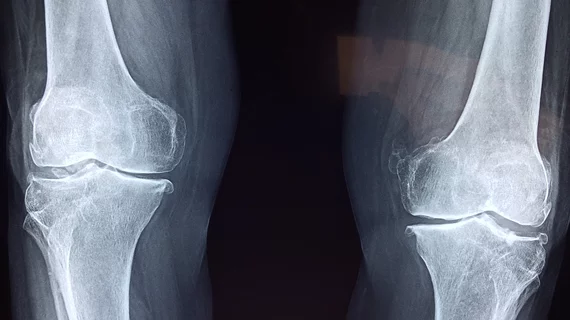Support system helps technologists correct knee X-ray errors, reducing exam retake rates
Reperforming imaging is a common problem when acquiring knee X-rays, draining unnecessary resources and exposing patients to added radiation. But experts have developed an artificial intelligence tool they believe can help.
A group of researchers from Osaka University in Japan unveiled their deep convolutional neural network Thursday in Radiography. The system assists technologists by classifying tilting direction errors and guiding correct positioning during lateral knee radiographs.
Many attempts have been made to reduce retake rates, but this tool focuses on correcting rejected images to cut down the number and time required to retake images. And initial experiments proved successful.
“Our research is a novel attempt to create a retaking support system,” Y. Ohta, with Osaka City University Hospital’s preventative medicine division, and colleagues explained. “This may reduce the inconvenience of patients and improve the work efficiency of radiological technologists, and we also assume that the proposed system may be used for the assistance and training for inexperienced radiological technologists and students.”
Ohta et al. trained their tool using more than 11,000 synthetic images generated from a large set of 3D computed tomography exams. Another set of flexed knee joint phantom images and 14 rejected knee joint X-rays were also used.
The assist system classified tiling directions into four categories and proved to be accurate. It notched the highest score on the synthetic image set and improved its classification capabilities as the tilting degree of knee joints increased, the authors noted.
A heat map showed the decisions were based on the state of the medial and lateral femoral condyles and the patella.
Additionally, the group noted it doesn’t appear knees with a small tilt always need to be re-examined and their system will need an added function to determine if retaking an image is required or not.
Read the entire study here.

